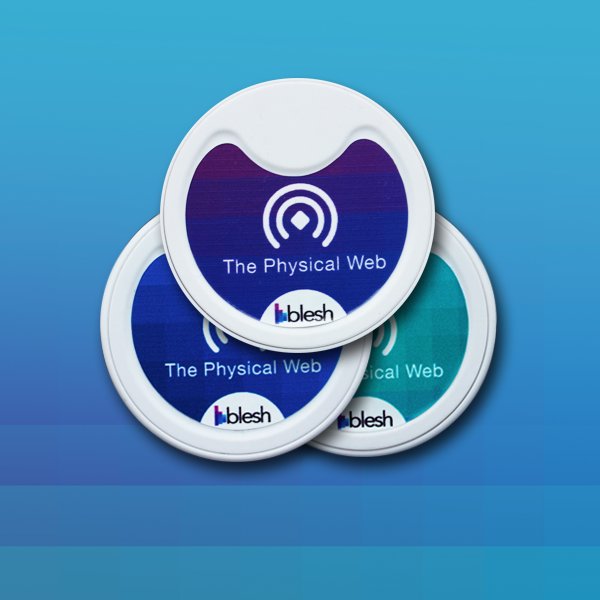Google's early-stage "Physical Web" project —  an attempt to displace Apple's iBeacons with a similar, open-source framework — is beginning to take shape, as Turkish hardware firm Blesh is now offering the first Physical Web-compatible Bluetooth beacon hardware.
For $50, developers can purchase a kit containing three Bluetooth beacons that implement Physical Web's accompanying UriBeacon standard. UriBeacon, which is designed to largely mimic iBeacon functionality, allows the small stick-on devices to broadcast either a unique identifier or a standard HTTP URL over Bluetooth Low Energy.
Blesh's Physical Web beacons can be configured using an Android application, and the company is urging developers to dream up novel applications for the technology.
"We encourage developers to let their imaginations run wild," Blesh CEO Devrim Sonmez said in a release. "We see even non-smart phone devices such as wearables communicating with Blesh PW beacons making possible an ecosystem that blurs the edge between physical items and the web."
The Physical Web project and the accompanying UriBeacon specification were announced by Google in October of this year. While the implementation is similar to iBeacons, the project's ambitions are — Â as is Google's wont — Â far more grand, imagining a future in which nearly every physical object is beacon-enabled.
"The Physical Web is an effort to extend the core superpower of the web - the URL - to everyday physical objects," according to the project's GitHub page. "Our core premise is that you should be able to walk up to any "smart" physical object (e.g. a vending machine, a poster, a toy, a bus stop, a rental car) and interact with it without first downloading an app. The user experience of smart objects should be much like links in a web browser: i.e., just tap and use."
Blesh's participation in the Physical Web program is particularly notable, as the company has deployed thousands of iBeacons as an Apple-authorized service provider. Competitors like Estimote and Gimbal provide Android-compatible software development kits, but none have stepped in to support UriBeacon.
 AppleInsider Staff
AppleInsider Staff








 Christine McKee
Christine McKee
 Malcolm Owen
Malcolm Owen

 Sponsored Content
Sponsored Content

 Amber Neely
Amber Neely











10 Comments
"The more to track and monetize you with, my dear." —The Big Bad Wolf
Delivering on Eric Schmidt's promise: "We know where you are. We know where you've been. We can more or less know what you're thinking about."
Much better idea then ibeacons in my opinion. Its web base not app base. I shouldn't have to download an app to get information. Google can't do what apple does due to hardware variation and fragmentation so they move up the stack to the cloud. Apple moves down the stack to hardware.
It's already dead.
No way I'm transmitting anything HTTP. Especially on a mobile device. HTTPS or GTFO Google.
It's just a URL so HTTPS is also supported